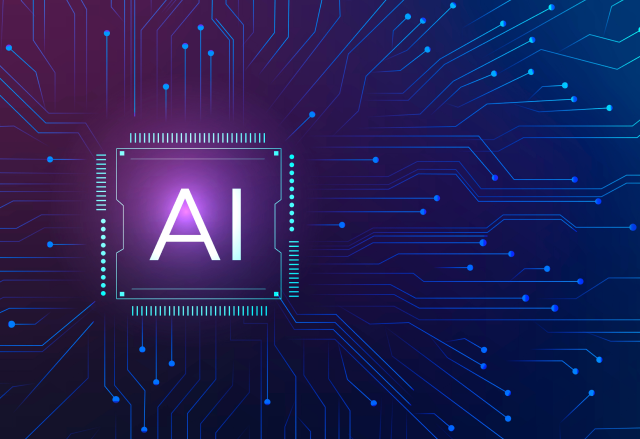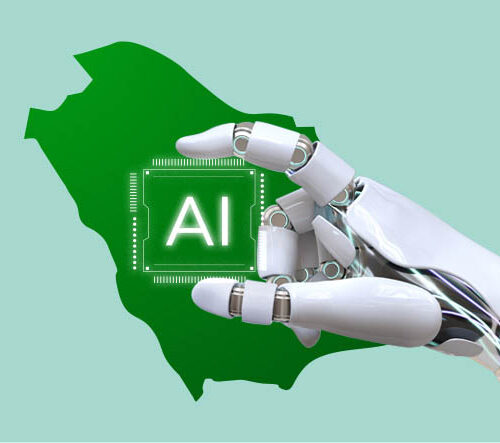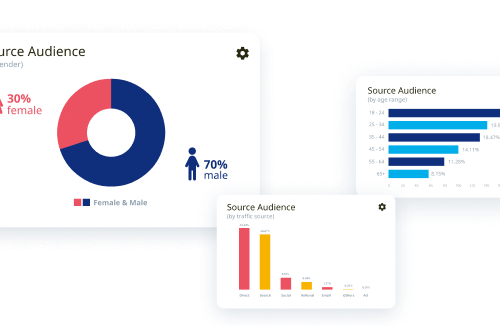Welcome to 2024, where Artificial Intelligence (AI) isn’t just reshaping the marketing landscape but redefining it.
Gone are the days when AI was merely a tool for automating tasks.
Today, it sits at the forefront of innovation, transforming how we connect with customers and tailor experiences to their unique needs.
In this article, we’re diving deep into the ways AI is setting new benchmarks in marketing, examining its uses, challenges, benefits, and how marketers are harnessing these tools for enhanced productivity and customer satisfaction.
Table of contents
Understanding the Role of AI in Marketing
AI’s emergence in marketing represents a paradigm shift, blending human creativity with intelligent technology. This blend proves pivotal in understanding and engaging more personally with customers.
Mailchimp reports that 50% of marketers believe inadequate AI adoption is holding them back from achieving their goals. While 88% of marketers, believe their organization must increase its use of automation and AI to meet customer expectations and stay competitive.
Comprehensive Impact of AI in Marketing
AI is transforming marketing from data analysis to customer interaction.
Data Analysis and Insight Generation: AI’s ability to process and analyze large volumes of data transforms raw information into meaningful insights. This analytical power helps marketers identify trends, understand customer behavior, and craft data-driven strategies.
Enhanced Customer Interaction: Automating customer interactions through AI leads to more efficient and personalized customer experiences. AI-powered chatbots, for instance, provide real-time, tailored assistance, evolving with each interaction to become more effective.
Predictive Analytics and Trend Forecasting: AI’s predictive models empower marketers to anticipate market shifts and consumer behaviours, enabling proactive strategy adjustments and keeping businesses ahead of the curve.
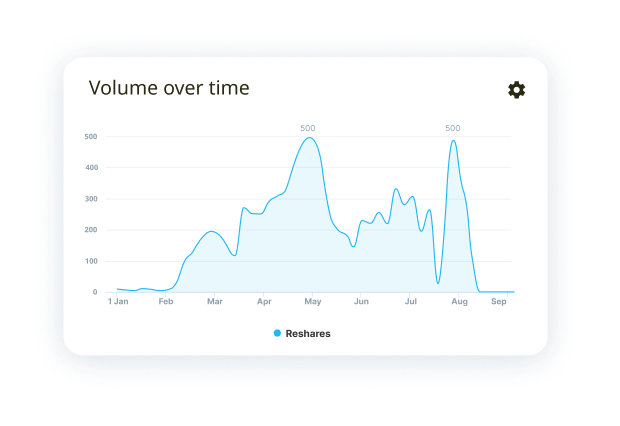
With these capabilities, the question becomes: What tools should marketers have in their arsenal to stay ahead?
The Rise of AI Tools in Marketing
The recent surge in AI marketing tools, like ChatGPT, has expanded the landscape to include content creation, analytics, and customer engagement.
Exploring Key AI Marketing Tools
ChatGPT: This conversational AI facilitates content creation, customer service, and marketing strategy development. Its natural language processing capabilities offer an engaging, human-like interaction experience.
Jasper.ai: This AI-powered platform accelerates content creation across various formats, including social media content, ads, blog articles, and more. It’s a boon for marketers looking to produce quality content efficiently.
Surfer: As an AI-driven content optimization tool, Surfer provides actionable insights for SEO, helping marketers refine their content for better search engine visibility and engagement.
Leveraging AI for Personalized Customer Experiences
AI’s role in personalizing customer experiences is a game-changer in marketing. It redefines how we connect with our audience, making every interaction more relevant and impactful.
Targeted Campaigns through AI Analytics: When leveraging AI for customer data analysis, businesses can craft highly targeted marketing campaigns. These campaigns use predictive analytics to determine customer preferences, enabling more precise targeting and higher conversion rates.
AI-Powered Chatbots and Virtual Assistants: These tools provide more than just automated responses; they offer real-time, personalized assistance that evolves with each interaction. They learn from customer behavior, preferences, and feedback, continuously improving their provided support and deepening customer relationships.
Business Benefits of AI in Marketing
The incorporation of AI into marketing strategies unlocks numerous benefits. Let’s have a look at some of them:
- Operational Efficiency: AI automates routine tasks, freeing your time for strategic thinking and creative endeavours.
- Scaled Personalization: AI’s learning capabilities enable personalization at scale, addressing individual customer needs effectively.
- Informed Insights and Analytics: AI tools provide deep insights into customer behaviours and market trends, guiding informed marketing decisions.
- Strategic Marketing Optimization: AI assists in continuously refining marketing strategies for optimal effectiveness.
- Enhanced ROI: Targeted marketing efforts, aided by AI, lead to better resource allocation and higher returns.
- Creative and Innovative Marketing: With AI handling repetitive tasks, marketing teams can focus on creative aspects, driving innovation in marketing strategies.
Adopting AI in marketing, while beneficial, comes with its challenges.
Adoption Challenges
Adaptation and Training: Successfully integrating AI into existing marketing strategies requires adequate training and a period of adaptation.
Quality Control: Ensuring that AI-generated strategies and content adhere to high-quality standards is crucial. A human touch is always necessary. As helpful as these tools are, they are prone to making mistakes, giving false information or not aligning with your brand’s voice.
Stakeholder Buy-In: Convincing stakeholders about the benefits and potential of AI in marketing is often challenging, especially when it comes to new and experimental technologies. Demonstrating tangible benefits, potential ROI, and strategic advantages of AI can help garner their support.
Using AI for Data-driven Decision Making
In media monitoring, AI’s role is particularly impactful, providing insights into customer sentiment, trends, and competitive landscapes.
Real-Time Media Analysis: AI tools scrutinize media content across platforms in real-time, offering instant insights into public sentiment, brand presence, and market dynamics.
Competitive Intelligence and Strategy Development: Through AI, businesses gain a deeper look into their competitors’ media strategies, facilitating informed strategic decisions.
Crisis Management and Opportunity Spotting: AI in media monitoring helps identify potential crises and opportunities, enabling businesses to respond proactively and strategically.
Sentiment Analysis for Tailored Strategies: These tools assess public sentiment towards brands, products, or campaigns, providing crucial feedback for refining marketing strategies, products and services.
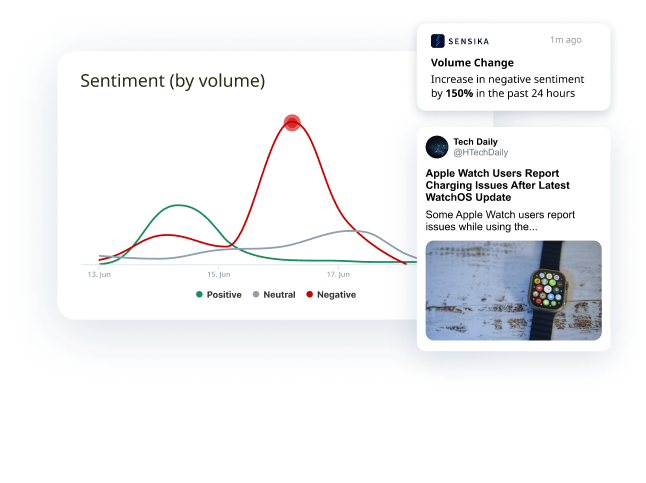
Actionable Takeaways for Harnessing AI in Marketing
To effectively leverage AI:
- Explore and Understand AI’s Capabilities: Familiarize yourself with various AI tools and their potential applications. Access a more extensive list of AI tools for marketers.
- Implement AI in High-Impact Areas: Start by integrating AI in areas that will benefit most, such as customer engagement and content optimization.
- Invest in Ongoing Learning: Keep your team updated with the latest AI tools and techniques.
- Continuously Evaluate and Adapt: Regularly assess the performance of your AI implementations and adjust strategies based on emerging insights and trends.
Wrapping Up
As we conclude our exploration of AI in 2024’s marketing landscape, it’s clear that AI is more than just a tech trend but a vital component of our strategic toolkit.
The real magic happens when we blend AI with our human creativity. That’s when we unlock new potentials, craft more personalized customer experiences, and stay ahead in the digital arena.
So, let’s not just use AI; let’s integrate it thoughtfully into our strategies to innovate and lead in modern marketing.
If you’re curious about what AI tools we developed at Sensika, book a demo to find out.
